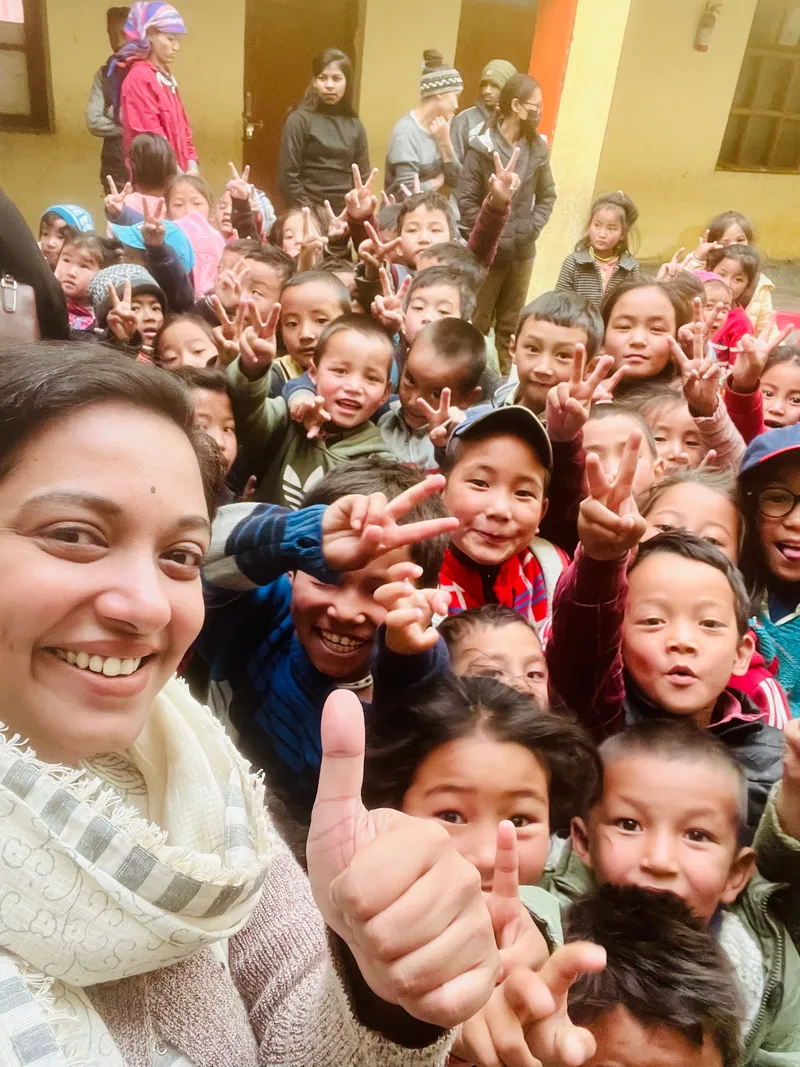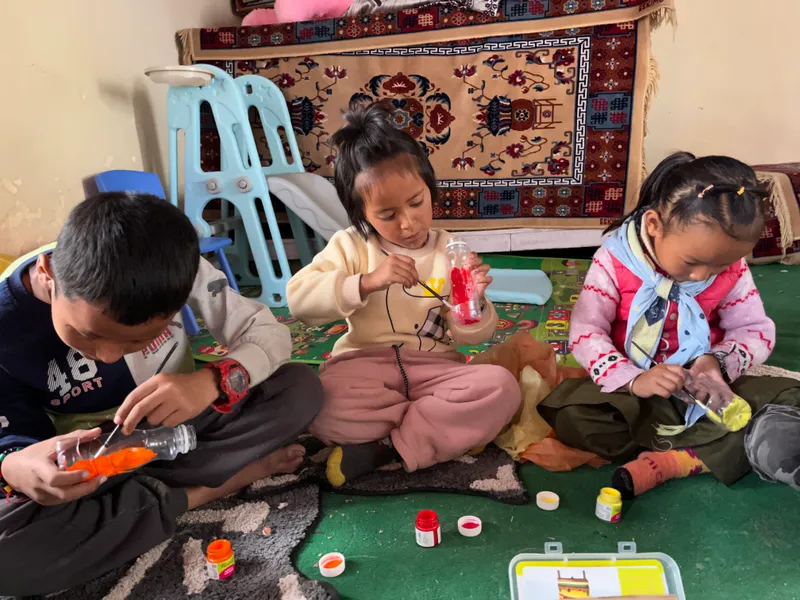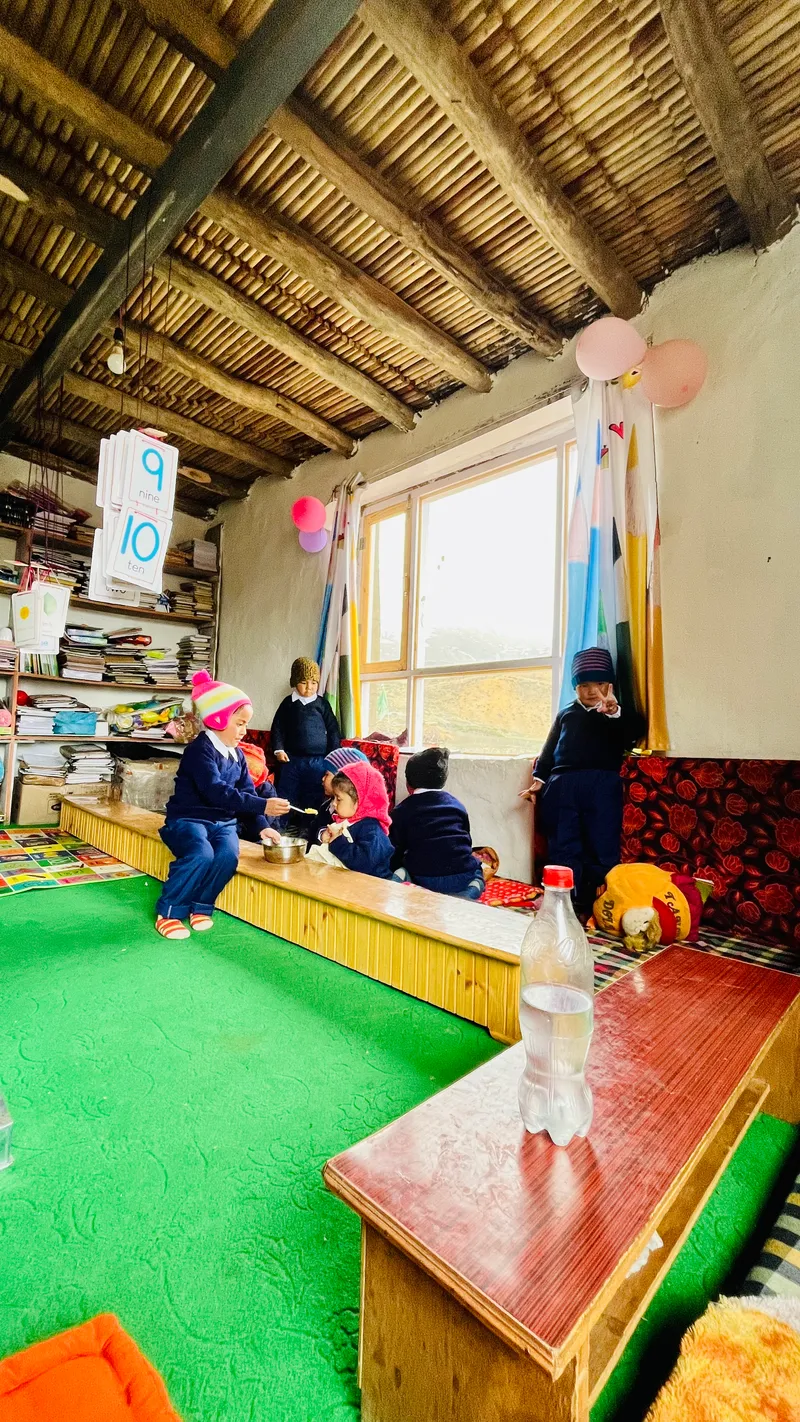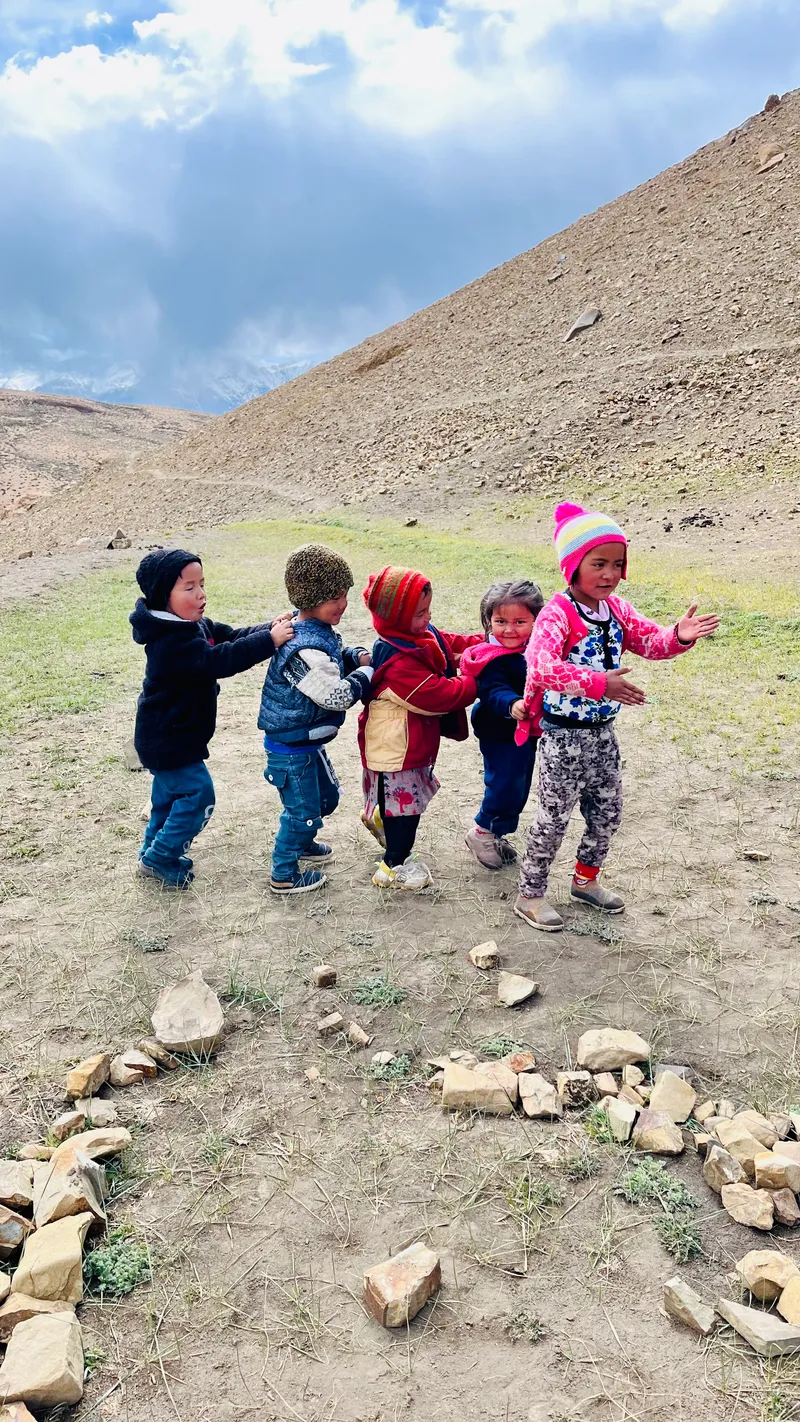How a former journalist redirected her life to provide free education to the children of Spiti Valley
Portia Putatunda, a former journalist, runs a free boarding school in Komic, a village located in Himachal Pradesh. The school offers education, food, shelter, and clothing to underprivileged children.
In 2016, Portia Putatunda, a former journalist, was devastated by the loss of her father. "I felt lost without my father, who had always been my pillar of support. His absence left me disconnected from the world,” she tells SocialStory.
This pivotal moment in her life prompted her to embark on a journey to find a connection with him which led her to Spiti Valley. The deep-rooted passion to help people was instilled in her by her departed father who was dedicated to providing for underprivileged children and firmly believed in the transformative power of education.
Today, Putatunda runs a free boarding school under the Planet Spiti Foundation in Komic, Himachal Pradesh. Situated at 15,500 feet, Komic is said to be the world’s highest village with a motorable road.
The former journalist is now playing the role of a teacher, a caretaker and in many ways a motherly figure to these underprivileged children.
“Starting a boarding school in Spiti and Lahaul was a decision born out of necessity and a desire to make a meaningful impact on the region's education landscape. The remote Himalayan district of Lahaul and Spiti is home to 231 scattered villages with sparse populations, some consisting of just one house and as few as four residents, often including a child,” Putatunda tells SocialStory.
One life, multiple roles

Portia Putatunda with children from the boarding school
Putatunda never planned to become a teacher. She was born and brought up in Ranchi, Jharkhand. Her father was posted there during her formative years. She hails from a close-knit Bengali Hindu family and has no geographical connection to Spiti.
As a student, she expressed a passion for media and journalistic studies and eventually grew up to become one.
“My career took its initial steps when I secured an internship with the Times of India in Kolkata. This experience provided me with invaluable insights into the world of journalism. Eventually, after working for 6 years in the industry in Kolkata, New Delhi, and Mumbai, I landed a position as a news producer at CNN-News18 Noida in early 2016, where I contributed to the production of news stories that reached a wider audience,” shares Putatunda.
In 2019, Putatunda decided to step away from full-time employment and explore the world on her terms. She transitioned into freelance journalism, collaborating with a US-based news website. This shift allowed her to combine her love for writing and travelling. It allowed her to cover stories from diverse corners of the globe.
While pursuing her career in journalism, she stumbled upon a place in Komic that she describes as “enchanting, albeit rundown”.
After losing her father, she went to Spiti Valley where she stayed in Kaza, a town in Spiti Valley, with a local family for a month and started teaching their children.
During this time she realised that education, especially for the underprivileged kids, was in very bad shape in the remote regions of the Valley. Carrying the dream of her father in the back of her mind, it struck her that she could help those underprivileged kids by starting a free boarding school.
In 2020 she left her job and moved to Spiti.
“Leaving behind my career was a sacrifice I willingly made to fulfil my passion for providing a brighter future for the young minds of Spiti. It's a journey that has been immensely fulfilling, as we work to nurture the potential of these children and empower them with education and opportunities,” says Putatunda.
Hotspot for a bright future
Putatunda says that starting a boarding school in Spiti and Lahaul was a decision born out of necessity and a desire to make a meaningful impact on the region's education landscape.
“Given this geographical and demographic challenge, bringing education to every village and reaching every child individually was simply impractical,” Putatunda adds.
Having spent two years teaching local kids in Kaza, she realised that a centralised boarding school was the most logical and efficient solution. It would provide access to education for children from across the region, bridging the gap in educational opportunities.

Children learning painting
According to her, a boarding school could not only address the logistical difficulties but also ensure a safe and conducive learning environment for these children.
Despite exploring options in and around Kaza, which offered better connectivity and amenities, none matched her modest budget.
She then stumbled upon a rustic building, with six rooms and abundant fresh air. The location proved to be an ideal match due to its clean surroundings, enveloped by open fields that provided ample opportunities for children to play.
The children attending this school hail from remote and nearby villages of Spiti and Lahaul, such as Sumdo, Kyomo, Lalung, Langza, Lossar, Komic, Hikkim, and more. As per Putatunda, around ten students enrolled in the school for this academic year, ranging in age from 2.5 years to 10 years old.
A holistic classroom
According to Putatunda, Planet Spiti Boarding School provides a comprehensive support system to ensure the holistic development of the students. This includes free education and distribution of stationery, school bags, uniforms, shoes, and comfortable home clothes to them.
The students in the school are also provided with warm clothing and bedding, crucial to face the harsh Himalayan winters. They also have access to indoor and outdoor games like carrom, ludo, Lego, jigsaw puzzles, and football, basketball, and cricket.
The school also houses a large 51-inch smart TV to enable smart learning. Nutrition is a priority at the school and it offers five daily meals, including milk and fresh fruits.
Along with free transportation to remote areas, the school also arranges regular health and dental checkups, as well as counselling services. This is done to nurture the physical and emotional well-being of the students.
“Our goal is to offer all these essential services to our students to create a nurturing environment for their growth and development without burdening the families with the costs as the kids are usually dropped off at the school empty-handed,” she says.

Children attending classes in the boarding school
The school’s curriculum is based on the ICSE model of learning and provides education up to the fifth standard. The students are also taught vital life skills including gardening, food preservation for winters, rainwater harvesting, and water conservation.
“We have plans to include animal husbandry in the future curriculum. We haven’t been able to implement it yet because of a lack of funds,” she adds.
According to Putatunda, ensuring that all students continue their education and do not drop out is a top priority for the school.
“We actively seek collaborations with reputable schools to secure full scholarships for our students, ensuring that they have access to quality education beyond our primary school,” says the former journalist.
The school also runs an initiative called the “Little Teachers" program where older students are encouraged to teach younger ones, receiving a small salary, typically Rs 700-1000 per month.
Challenges and funding
As per the challenges listed by Putatunda, lack of funds, scarcity of manpower, difficulties in construction, and transportation and harsh weather conditions are the prominent hurdles that come in the way of her mission.
“Knowledge sharing and finding similar role models in this remote region is an arduous task. Additionally, Komic's landscape, devoid of a single tree or shrub, exacerbates the challenges, making every breath a conscious effort,” she explains.
She adds that surviving at 15,500 feet comes with its own set of trials such as sub-zero temperatures year-round, seven months of snow cover, frozen water and food supplies, and unreliable power. The isolation intensifies with no cellular or internet access for days, hampering communication and access to online resources and guidance.
Putatunda has been primarily using her savings to support the school. Additionally, she has received support from individual contributors and sponsors who have stepped up to help cover the costs of some students and the monthly expenses.

Children playing in an open field
“Heating the school in the cold months is a substantial cost, with firewood alone costing Rs 60,000 annually. However, given the scarcity of trees in Spiti, we've turned to collecting cow dung from the mountains as an eco-friendly and cost-effective alternative to keep our school warm during the freezing winters,” explains the former journalist.
Despite the many hurdles in Putatunda’s journey, she remains determined not to give up.
“The unparalleled beauty of living at 15,500 feet, makes me feel closer to heaven and my father. In the future, I aspire to adopt a child or two and make Spiti my permanent home,” she signs off.
Edited by Affirunisa Kankudti







